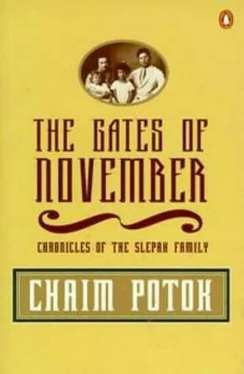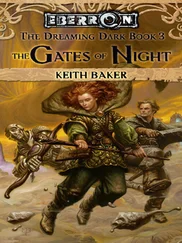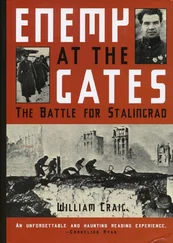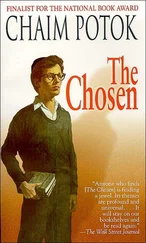We turned onto a shoveled path, a murky whitish corridor between heaped-up mounds of snow. Ahead stood a towering apartment building.
“I must now ask you,” he said, “let us not speak anymore until we are inside the apartment.”
He unlocked the front door. We entered a dark foyer and began to climb barely visible stairs. The place had the air of an old New York tenement, but with no vivid sounds of life drifting out from behind closed doors. Here you wanted to walk on tiptoe, expecting a sudden leap out of the violet shadows by figures demanding to know what you were doing there.
At the top of the staircase, a corridor. We walked toward a door-which, a scant moment before we reached it, opened to us suddenly and mysteriously.
In the doorway stood a woman of early middle age. Without a sound, she beckoned us inside and as soon as we’d entered, closed and locked the door.
We were in a narrow hallway. Coat pegs protruded from the wall, a small mirror hung nearby, and close to the wall stood a bench around which were shoes and house slippers, all neatly arranged in pairs.
Volodya Slepak and the woman exchanged some words in Russian. I assumed she was Masha Slepak’s sister-in-law. She pointed silently to the house slippers and then went down the hallway and into a room.
We removed our coats and hats and hung them on the pegs. Everything we wore dripped melting snow. Puddles formed on the hallway linoleum floor. Adena and I proceeded to unlace and remove our wet boots, and put on the slippers we had brought with us. Mine I carried in my camera bag.
Standing in a gray woolen sweater and dark trousers and slippers, his thick graying hair uncombed, his beard still wet with snow, Volodya Slepak watched as we got into our house slippers, and flashed us an appealing smile.
“Ah, you come prepared. Very good. Now come with me, please. You will meet everyone.”
We followed him through the hallway into the main room of the apartment.
It was a fair-sized room that served as both a living room and a dining room, the air warm and stuffy, the floor covered by a rug, the slightly shabby genteel look not unlike that of the rooms in which I grew up in middle-class neighborhoods of New York. In front of the couch stood a table with seven place settings. Bookcases jammed with volumes and periodicals took up the entire wall to the right of the couch. The curtains had been drawn over the windows on the other side of the room. Near the windows stood a small desk on which were a telephone and a vase filled with flowers. During the day I had seen elderly women bundled against the cold, standing in the snow, peddling flowers from little stands.
A few feet from the couch stood the dark-haired woman who had opened the door for us and a middle-aged man I took to be Masha Slepak’s brother. Next to him was a stocky, pale-faced young man of about eighteen, no doubt their son, Masha’s nephew, about the same height as his father, with thick dark hair and a bit of a stoop, and wearing on his sallow features an expression of deep melancholy.
Masha Slepak sat on the couch. She was a small, plump, shy-looking woman, with pallid, roundish features and short reddish hair, her eyes brown and alert behind thick glasses. She gazed at us with a wan, myopic look and a distant smile.
Our formal introduction to the family was brief.
“Here are people from America come to visit us,” was all Volodya Slepak said. There were polite handshakes. No one asked our names.
The atmosphere in the room was disquieting; it seemed to quiver with barely suppressed apprehension. Someone once said that the only true question we ought to ask one another is: “What are you going through?” Probably in the course of this evening the question would be answered without ever being asked. It was a desperate way for people like these to sustain life and hope: through strangers dropping in from the sky.
Masha Slepak’s brother and sister-in-law went into the kitchen. Her nephew retreated into a room off the hallway near the door to the apartment.
Earlier that day Adena and I had purchased a bottle of Stolichnaya vodka. This Adena now removed from her bag and presented to Volodya, who broke into an exuberant smile.
“Aha, that’s good, that’s good,” he boomed, looking thoroughly delighted. “Thank you very much.”
The room was sultry with radiator heat. No doubt the windows were fogged over behind the heavy curtains.
Adena went to the telephone to arrange our meetings for the next day. Volodya and I sat on chairs near the table.
“So,” Volodya Slepak said, “you are from America.”
His eyes, I noticed, were grayish green, mischievous and shrewd. Beneath the folds of his loose-fitting woolen sweater was the clear outline of a paunch.
I said, “Yes, from Philadelphia.”
“Do you know many Jews in Philadelphia?”
“We bring greetings from lots of friends.”
I mentioned the names of some people who had asked us to convey their good wishes to the Slepaks. He acknowledged the names with a hearty “Yes, of course, we know them.”
The conversation, slowly warming, still carried a measure of awkwardness, the quality of a hospital or prison visit, where the knowledge that one of the parties will sooner or later get up and leave while the other must remain behind chills the air and brings to all the talk an undercurrent of melancholy. Volodya Slepak’s English, with its heavy Russian accents, was fluent. And there was something beguiling about his eyes and expressive mouth and deep-throated nasal voice, a compelling, robust force that radiated energy.
All the time we talked, Masha Slepak sat quietly, her eyes watchful behind her thick glasses.
Volodya Slepak rubbed his beard and said, “If you permit me, I must ask you something.”
“Please,” I said.
“There is a man who lives in Philadelphia. The writer Chaim Potok. Do you perhaps know him?”
I said, trying to conceal my surprise, “Well, yes…”
“You do?” His face lit up.
I said, “Im Chaim Potok.”
His eyes narrowed. He looked confused.
Masha Slepak said something to him in Russian, the first time she had entered the conversation, and he responded to her quietly in Russian while still looking at me.
Both of them gazed at me with some unease.
“No, excuse me,” Volodya Slepak said. “Perhaps you did not understand. My English is not always so good. I asked if you knew the American writer Chaim Potok.”
I glanced at Adena-she was still talking on the phone at the other end of the room-and said slowly, “Yes, I know Chaim Potok. I am Chaim Potok.” And I reached into a pocket and drew out one of the calling cards I had been advised to have printed for the trip. In a Russian home, I’d been told, they served as a kind of genteel announcement of one’s identity, a bourgeois emblem of individuality amid the ideological leveling of personality purportedly characteristic of the Soviet world.
Volodya Slepak took the card, lifted the bottom of his sweater, removed a pair of reading glasses from his shirt pocket, slipped them on, raised the card to his eyes, and peered at it. I thought I could see the skin above the line of his beard and along his broad forehead turn crimson. He took off his glasses and stared at me in astonishment and then uttered a sudden loud “Whooo!” that resounded through the apartment.
Adena turned and looked at Volodya.
Masha Slepak, seeming confused, spoke rapidly in Russian, and Volodya replied. I heard my name in his cascade of words. She said, “Oh!” and put both her hands to her mouth and stared at me.
Her brother and sister-in-law came in from the kitchen, and a moment later the pale-looking nephew burst from his room and rushed to the side of his alarmed parents.
Читать дальше












